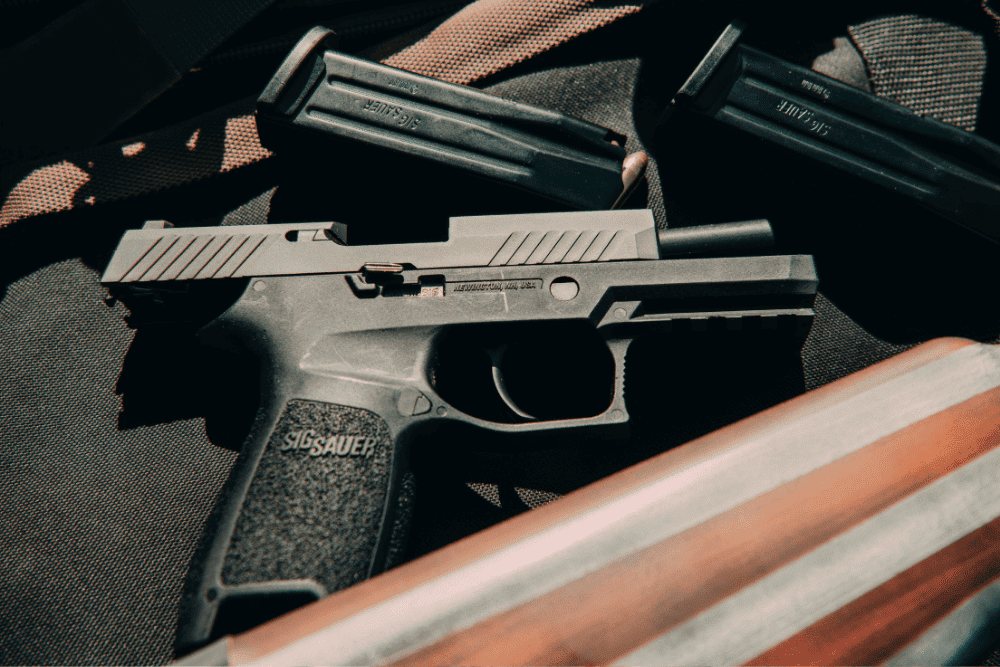The events of January 2, 2021 will go down in history as one of the nation’s darkest hours. Six months later arrest of individuals involved in the Capitol insurrection Capitol are beginning to work their way through the court system – and this is an eye-opening process for a variety of reasons.
One case in particular involves a defendant who has been charged with a federal crime that’s rarely utilized. Federal prosecutors charge that the defendant brought firearms to Washington, violating a federal law that makes it illegal to transport explosives or firearms for use in a riot.
This is a controversial case. It illustrates how complicated these matters can be. Here’s what you need to know about the case involving this new and infrequently used law.
Crimes Involving Firearms and Explosives
It is illegal in Washington D.C. to possess a firearm. Therefore, bringing a firearm into the District is illegal in and of itself, but that’s not all.
It is illegal under federal law to transport or receive an explosive if they’re intended to be used to harm property or people. This law applies when someone transports firearms or explosive devices that are intended to be used unlawfully for the furtherance of civil disorder.
It’s safe to say that civil disorder was exactly on the menu for January 6, which is why federal prosecutors have decided to charge this defendant with this offense.
The penalties for violating rarely used law are as many as five years in prison and possible fines, although transporting explosives can raise the penalty to 10 years in prison.
Other Crimes Prosecuted on January 6
While this case is garnering more the lion’s share of attention, other insurrection cases involve crimes that are also noteworthy. It’s important to note there isn’t one blanket law that covers all acts of domestic terrorism.
Instead, there are a variety of laws meant to punish actions that fall under the category of domestic terrorism; for example, this law regarding the transport of firearms to be used in the furtherance of civil disobedience.
Some of the other crimes that may be charged over the coming months include:
Seditious Conspiracy
This crime occurs when two or more people agree to interfere with the functions of government—even if they don’t successfully complete it. No individual or group is legally allowed to hinder or delay the enforcement of laws in this country.
This crime can send a person to prison for 20 years if they are found guilty.
Assault
Anyone who threatened or attacked another person during the riots can be charged with assault. Also, assault with a deadly weapon could be charged – and some of the weapons involved were unconventional.
Using flag poles to hit others and slamming officers between doors can be seen as assault with a deadly weapon.
It depends on the case prosecutors want to try to build, but these crimes are punishable by as much as 20 years behind bars.
Solicitation
When you try to get another person to commit a crime for you, that’s known as “solicitation”. If some of the people in attendance at the rally before the march to the Capitol building tried to get others to participate in an insurrection, then solicitation was committed.
Racketeering
Under federal law, a person cannot promote or conduct criminal activity across state lines. If someone traveled from outside of the District to commit crimes, then they can be charged with interstate travel in aid of racketeering.
That can result in up to 20 years in prison.
Violations of Restricted Areas
It is illegal under federal law to engage in violence toward property or a person within a restricted building or grounds. It’s also illegal to enter a building or grounds in order to disrupt the business of the government.
Entering and remaining in restricted areas is a misdemeanor for which several people have already been charged that can result in 12 months in prison if convicted.
However, if a deadly weapon is carried or if someone is seriously injured as a result of being in a restricted area, then as many as 10 years in prison can be sentenced.
The case of the rioter who is being charged under the new firearms law is still working its way through the court, as are the other cases involving the events of January 6. But one thing is for certain: this experience shows how citizens can be charged if they violate the law, no matter how unconventional it is.





